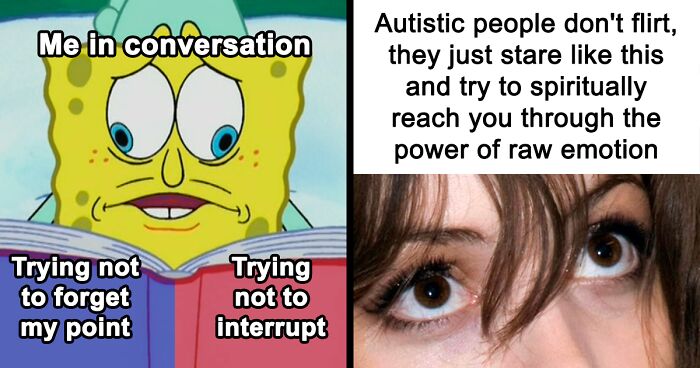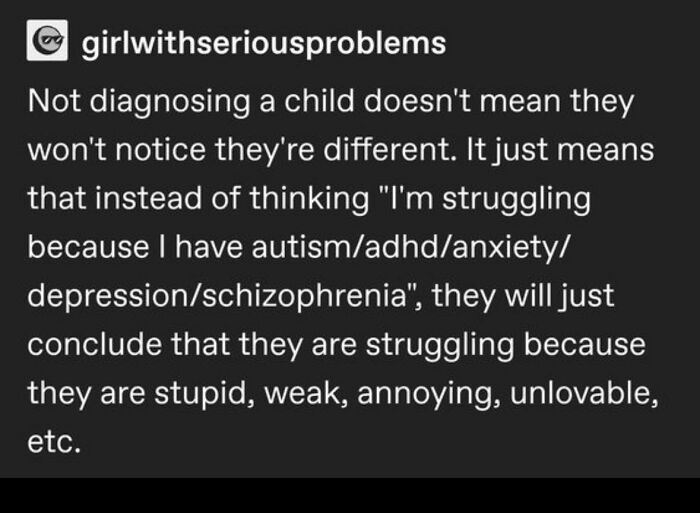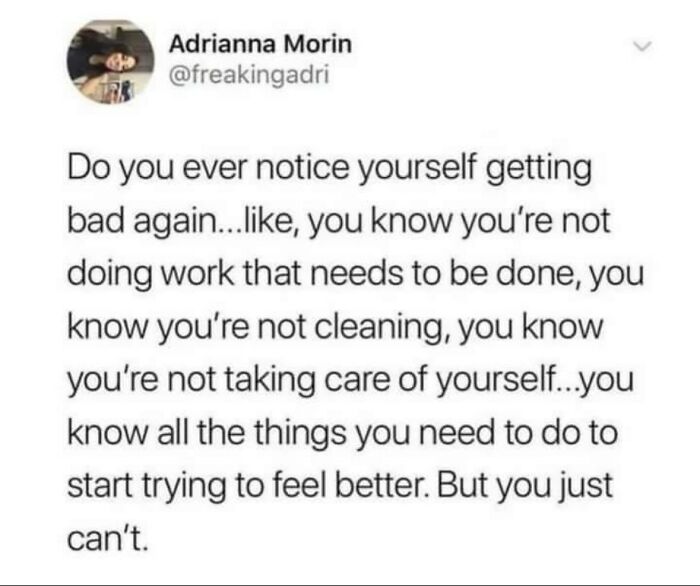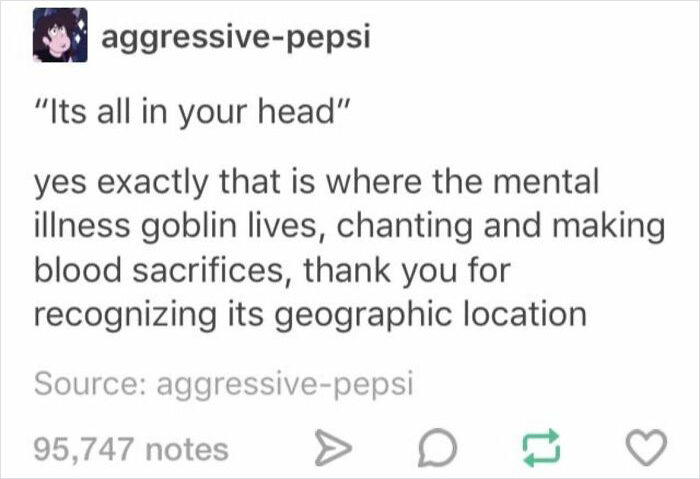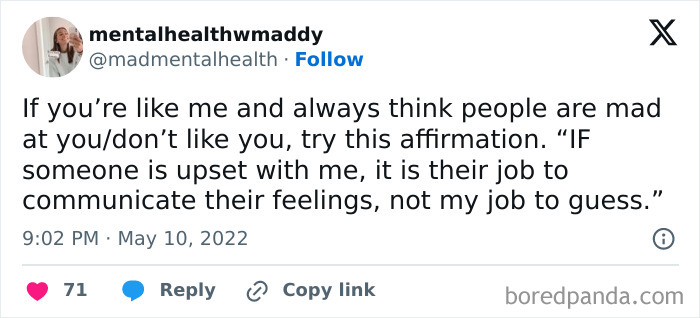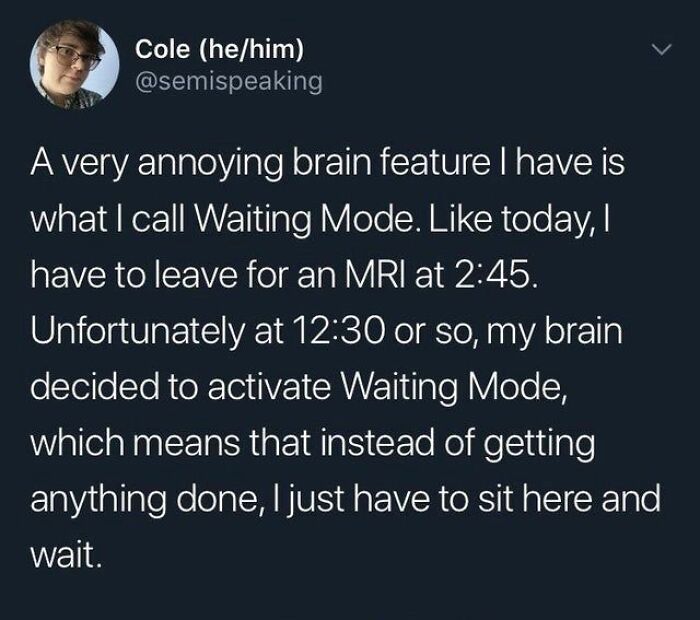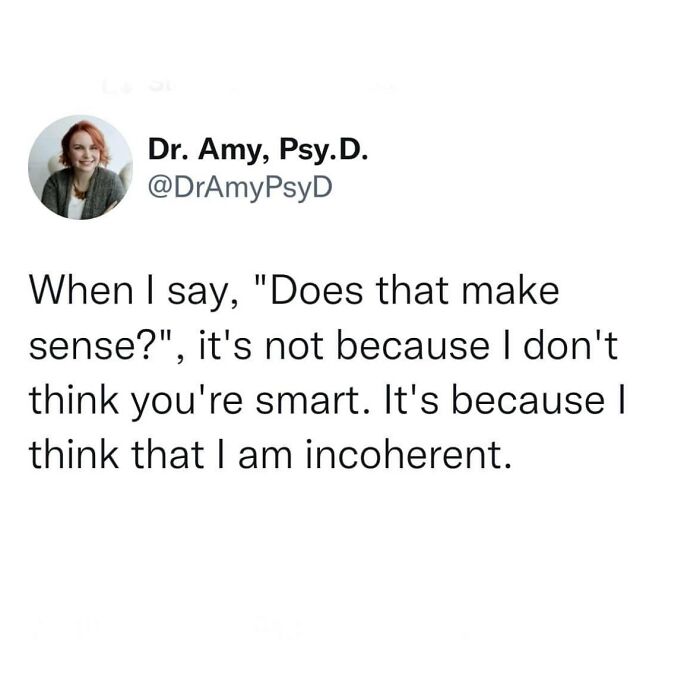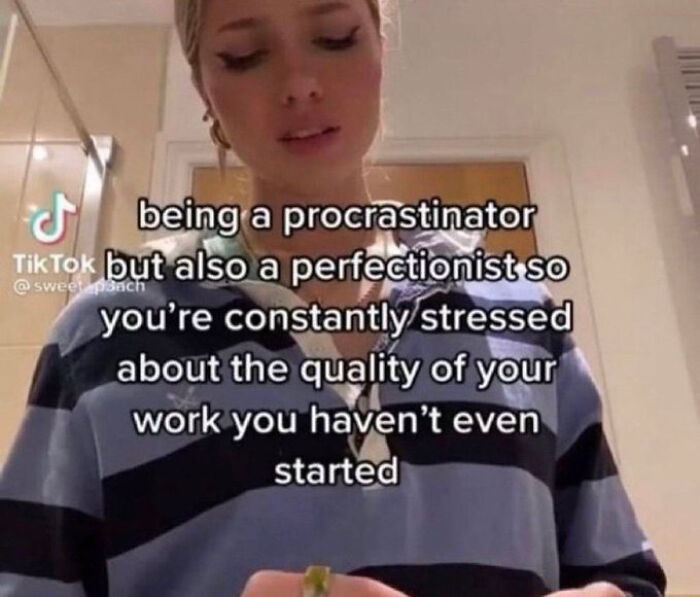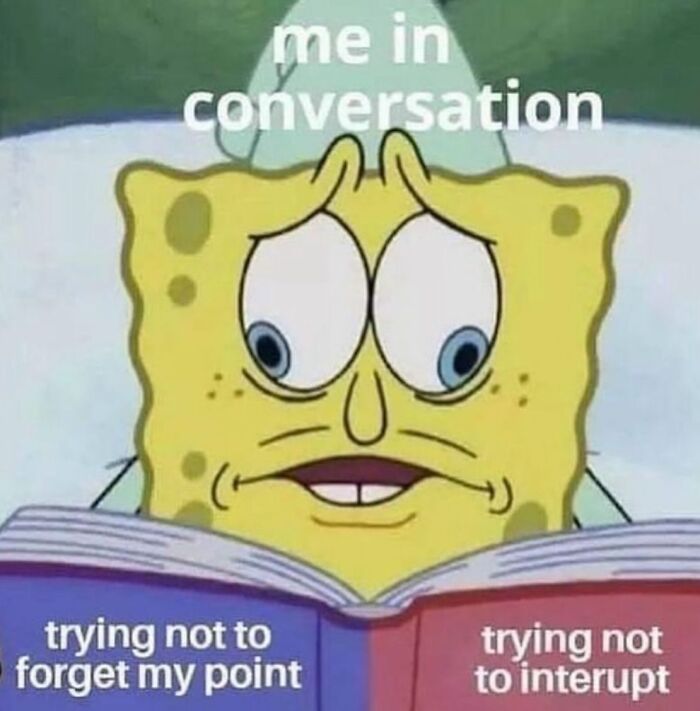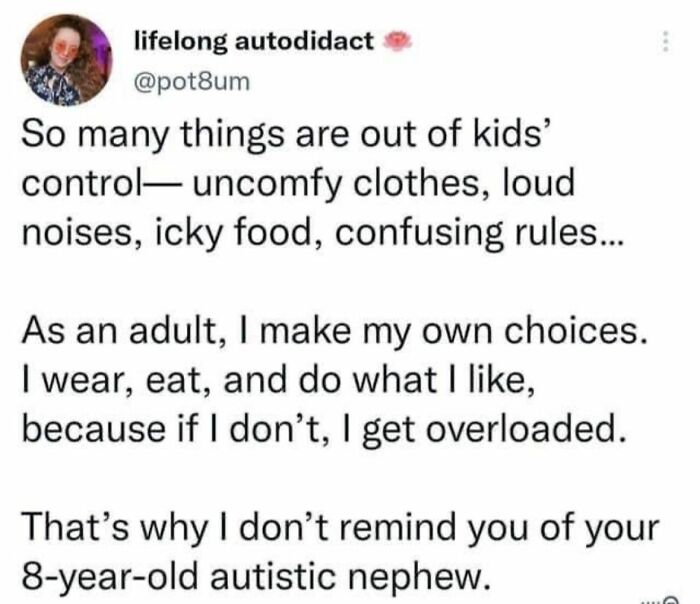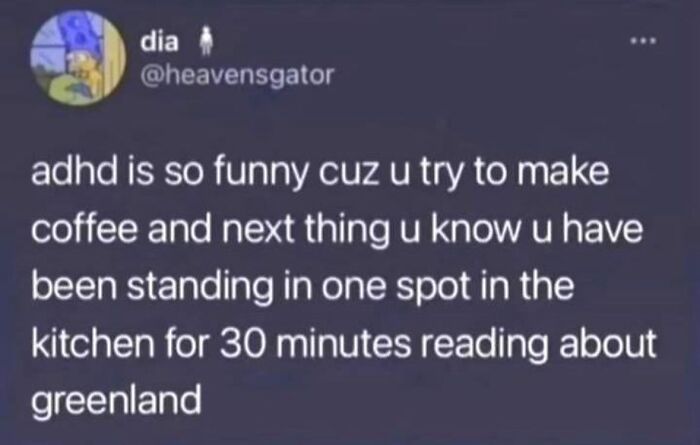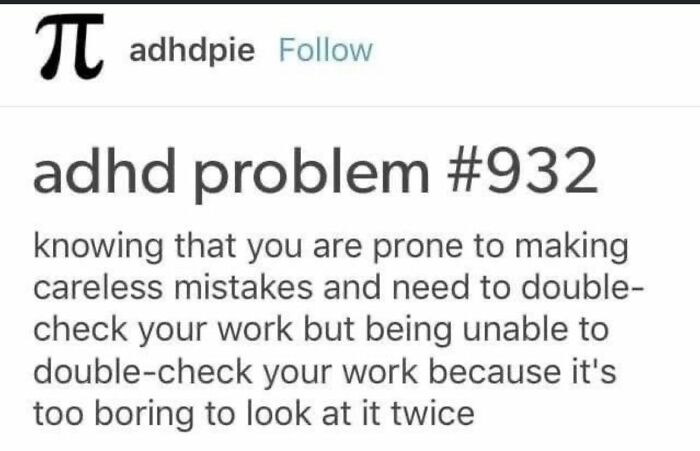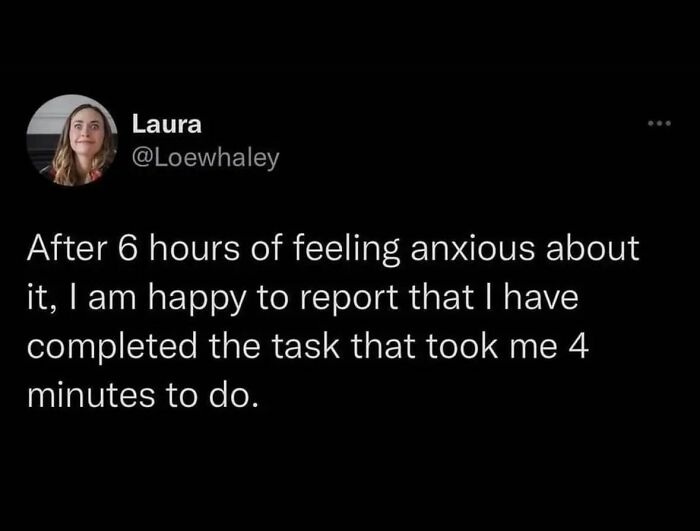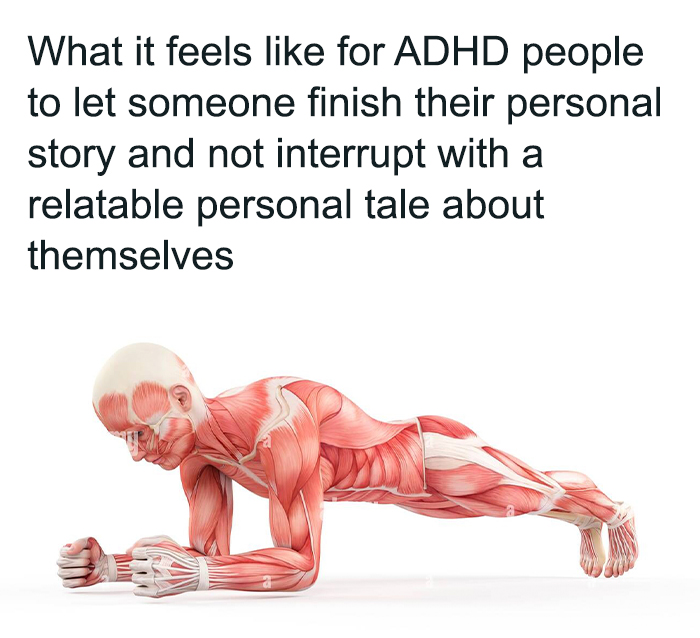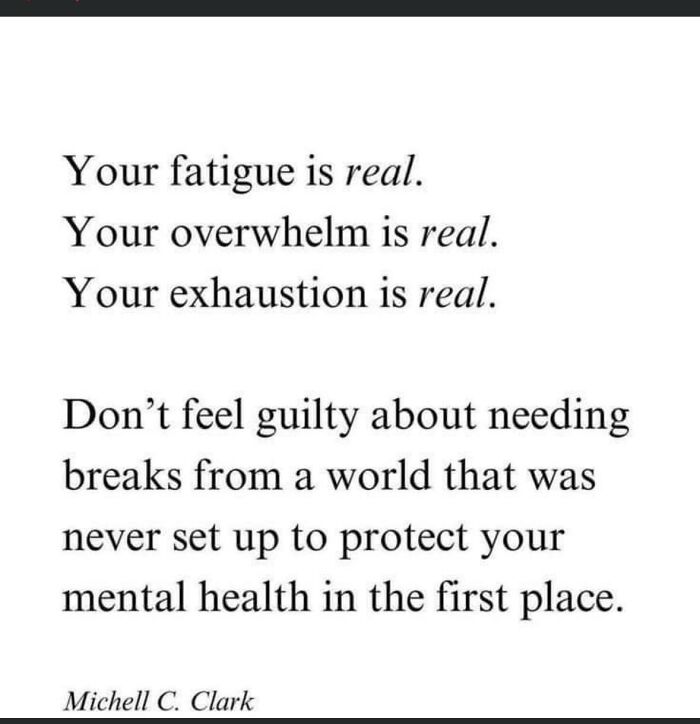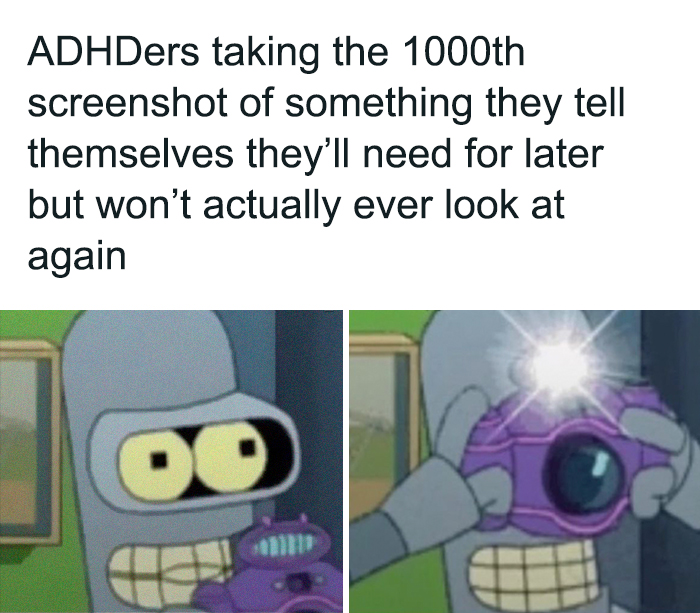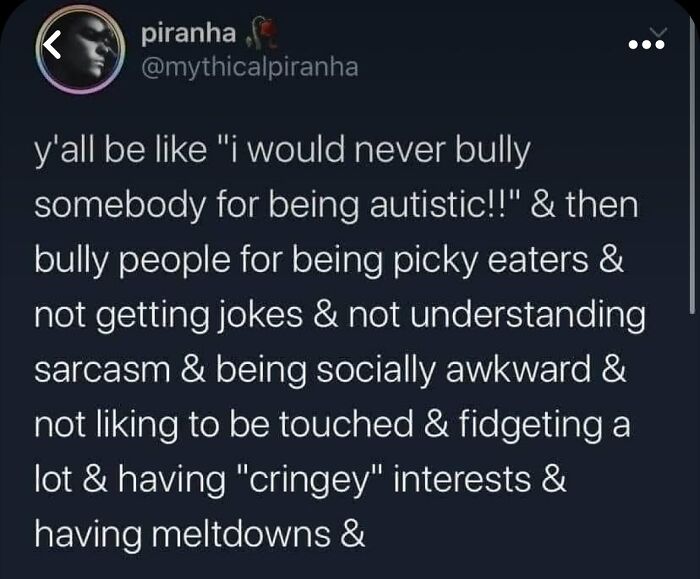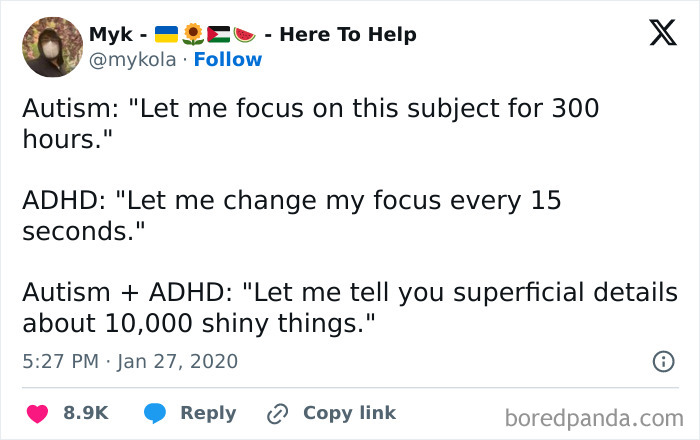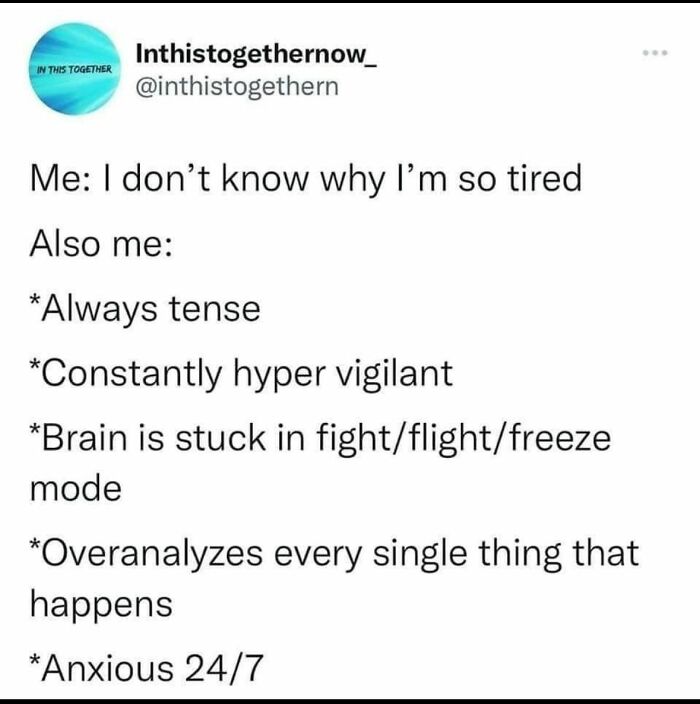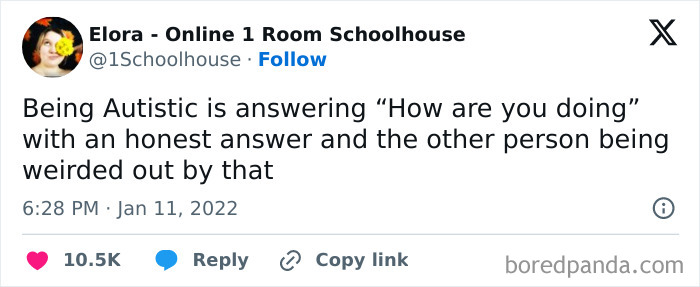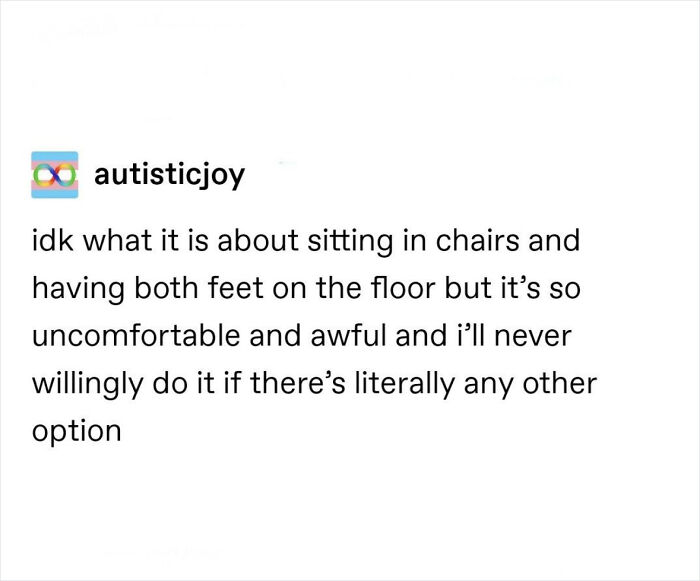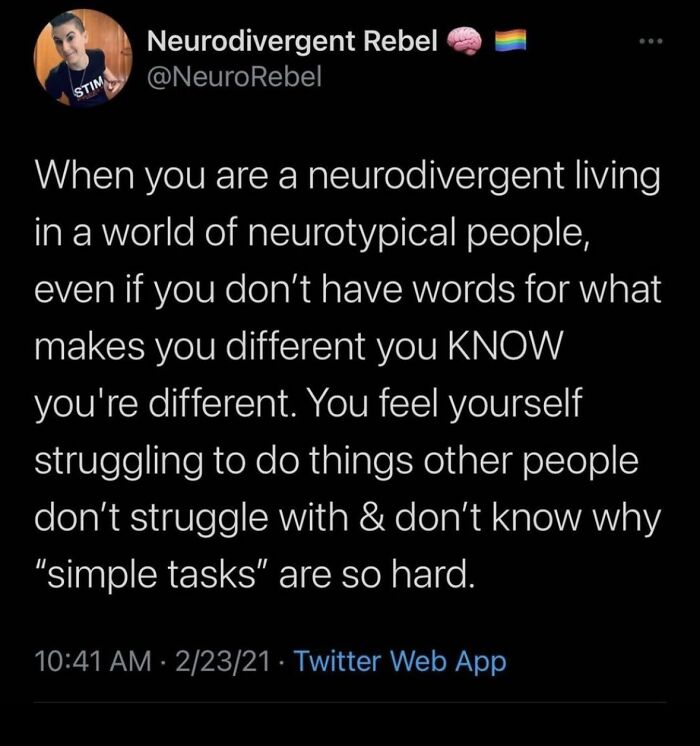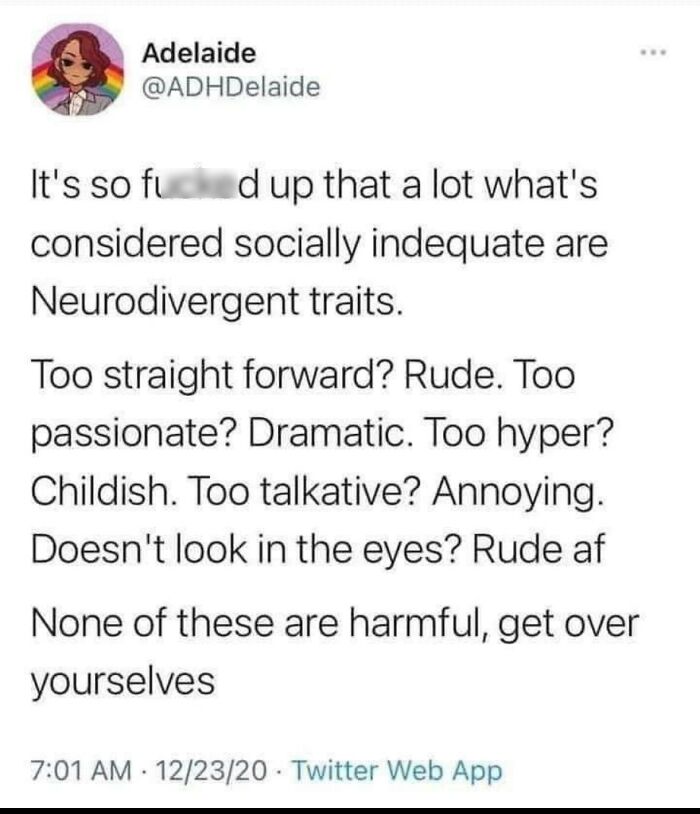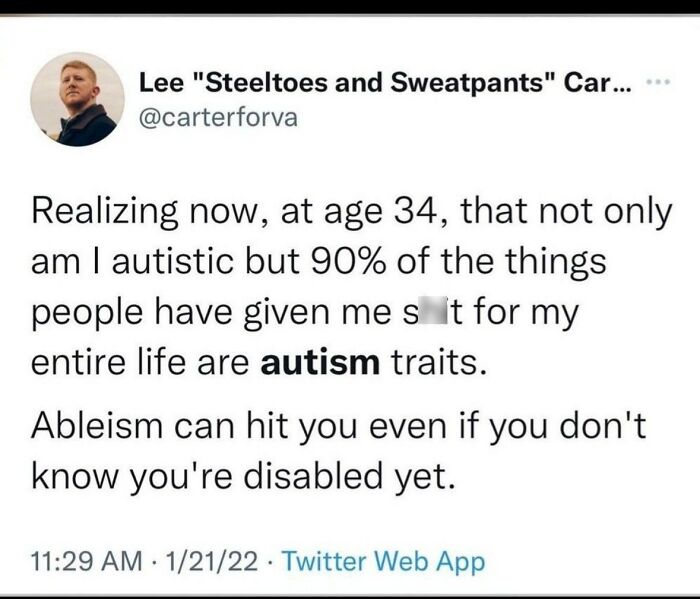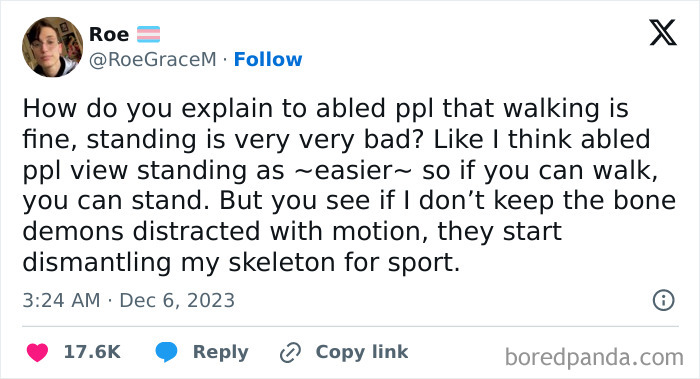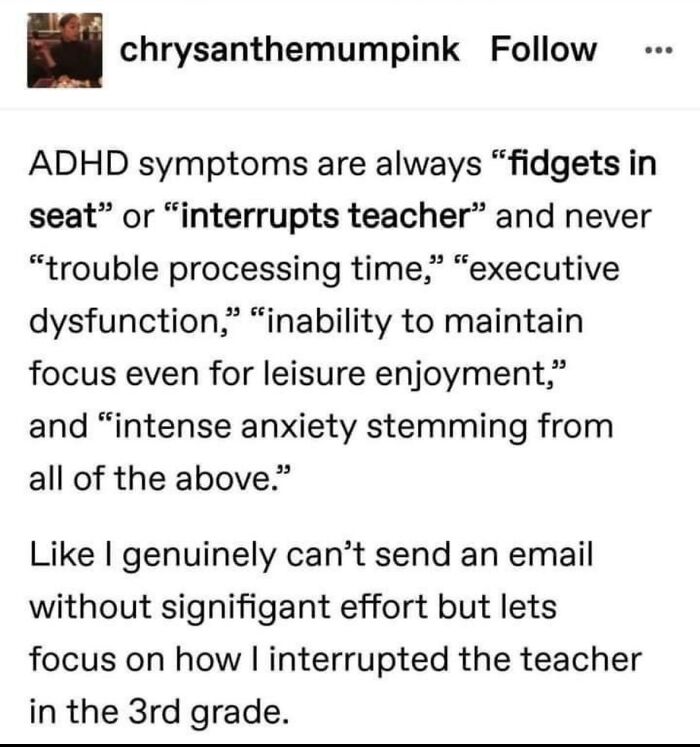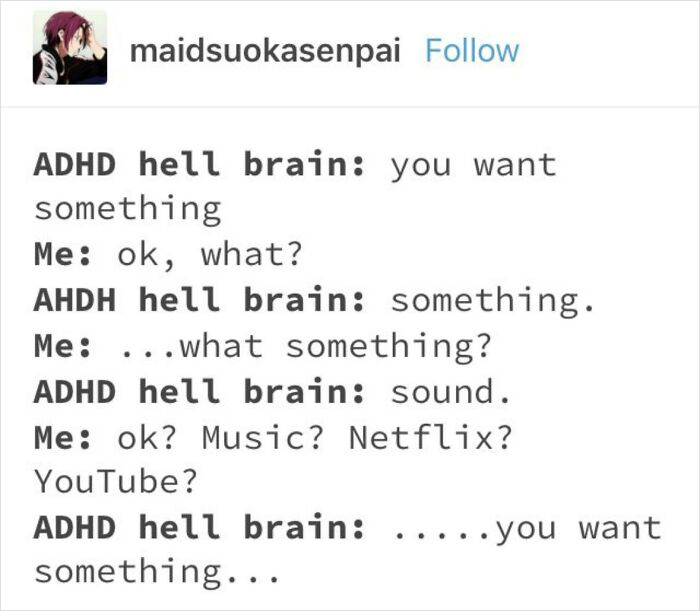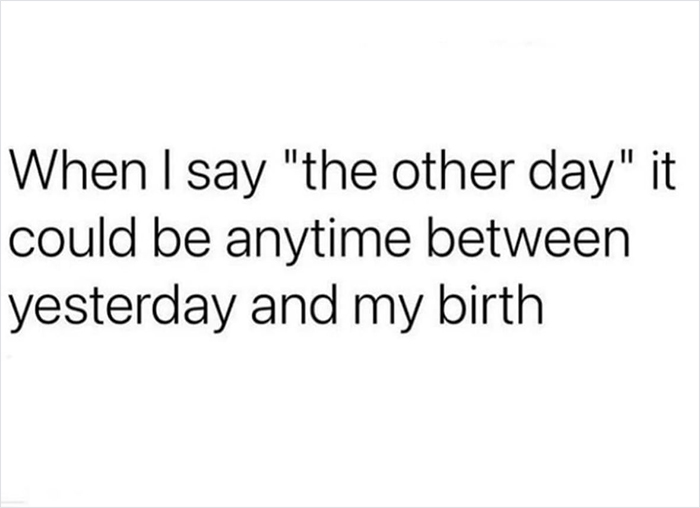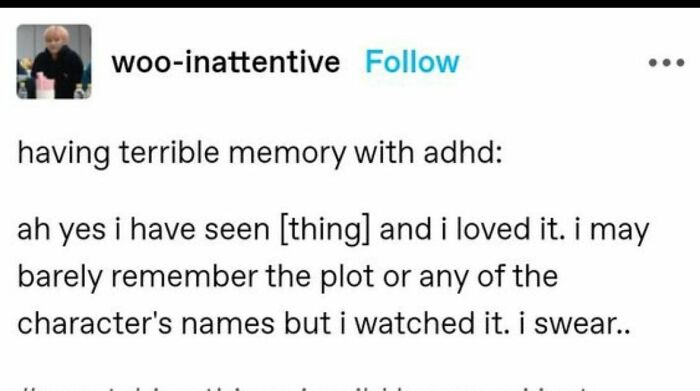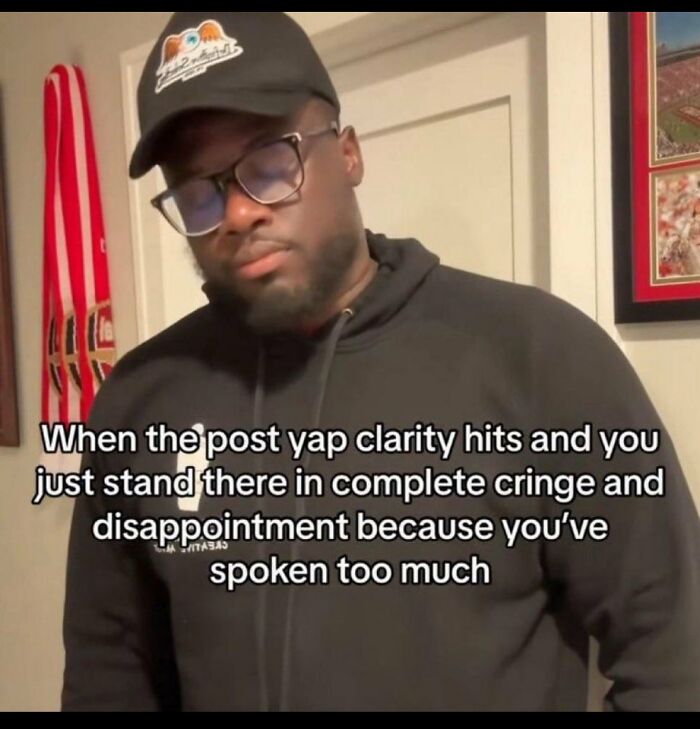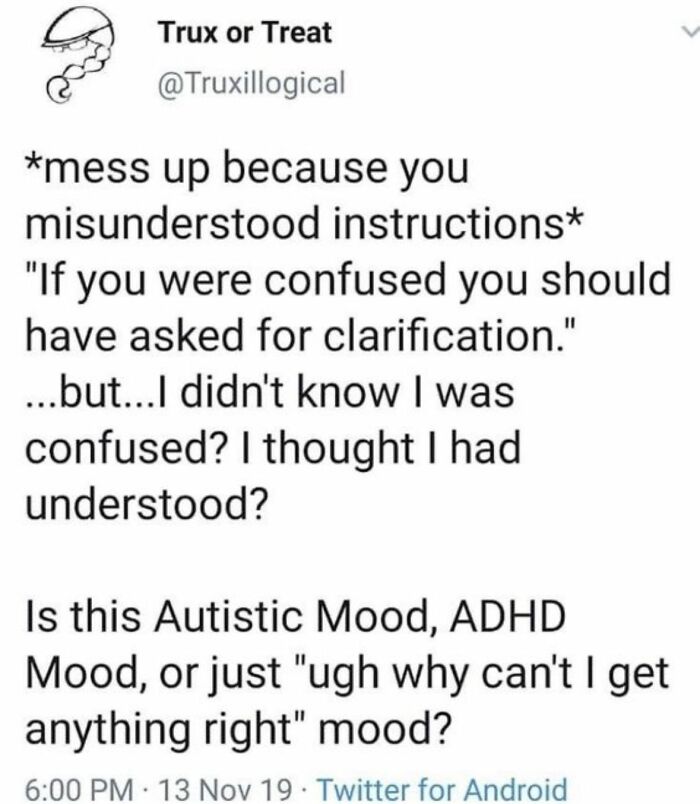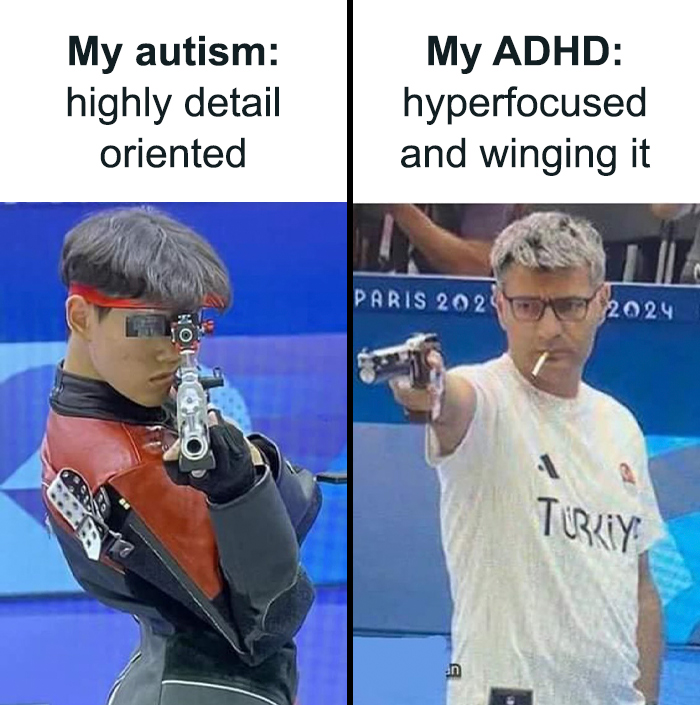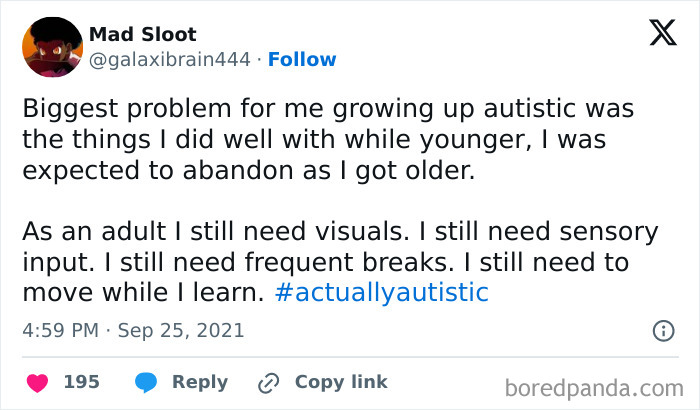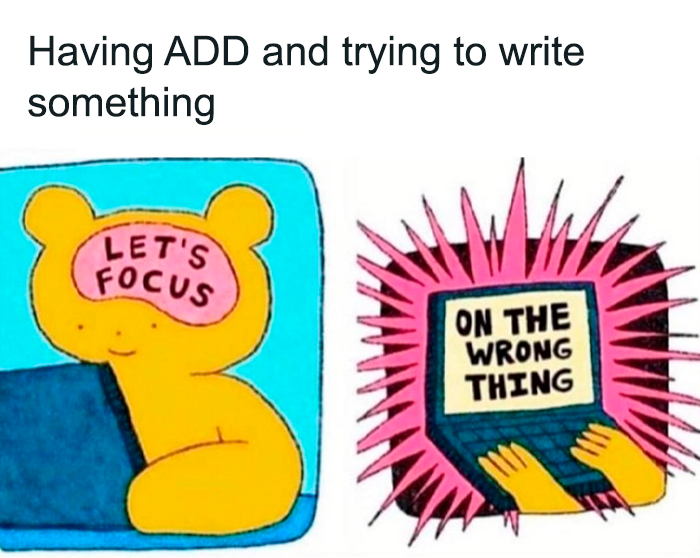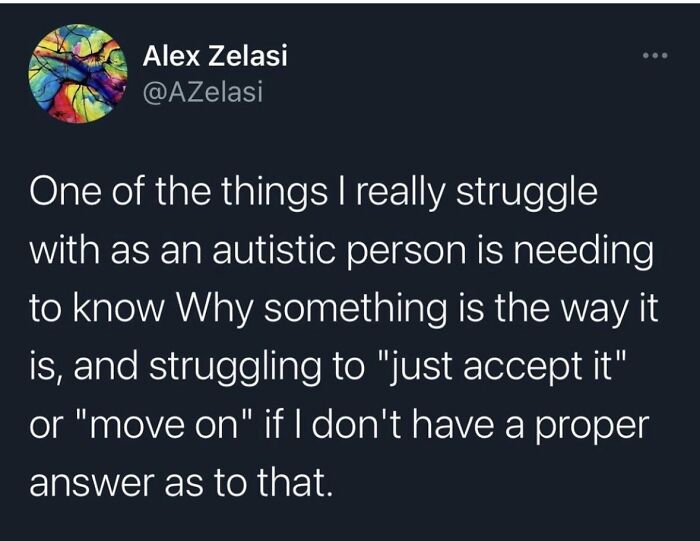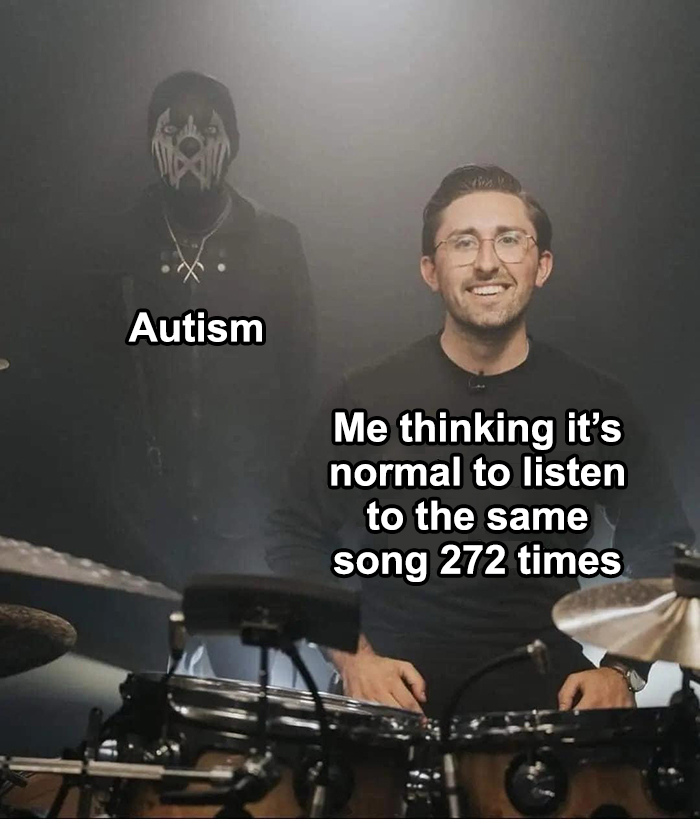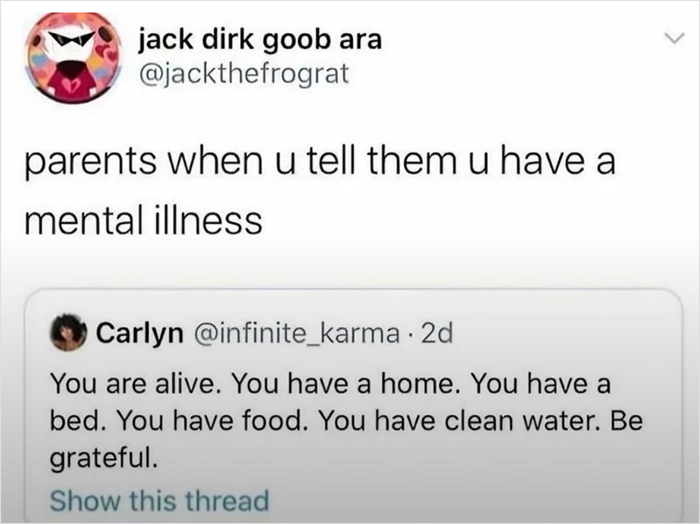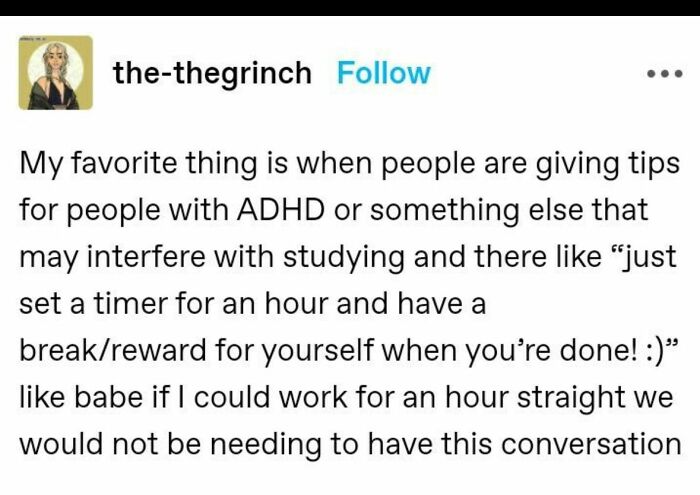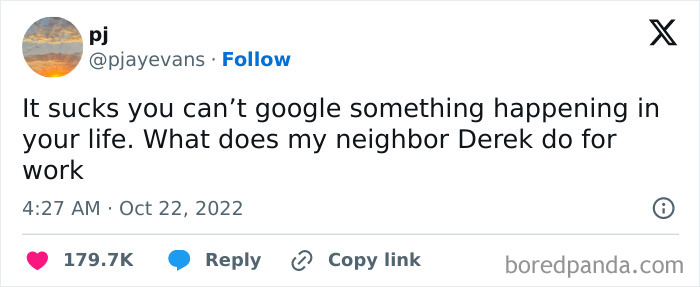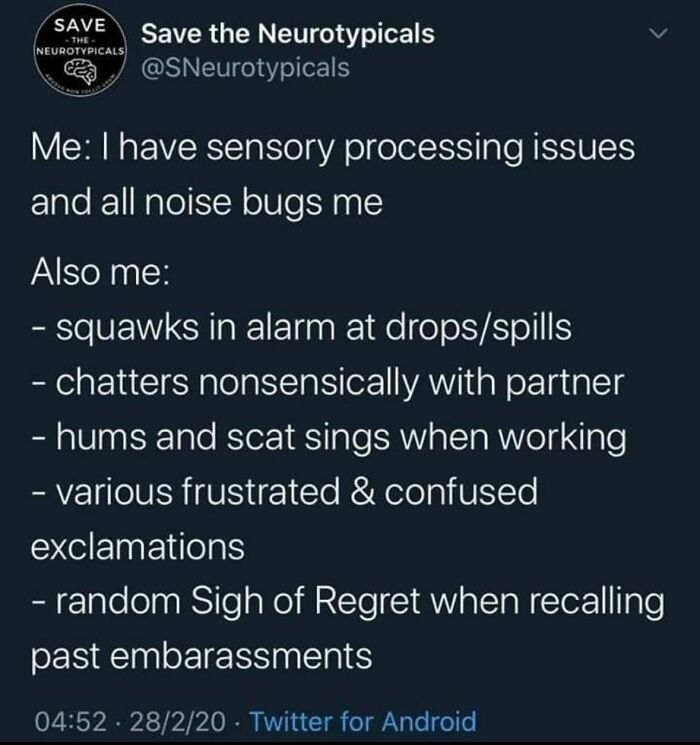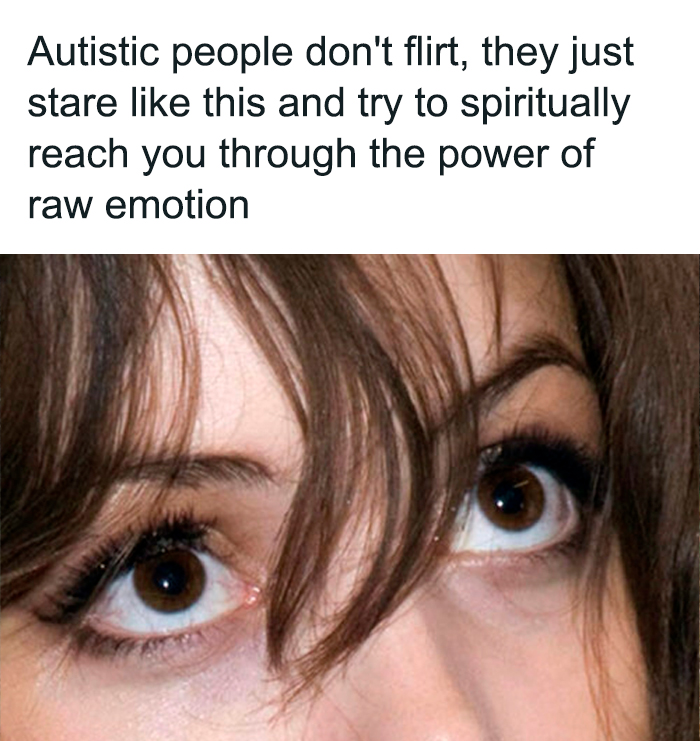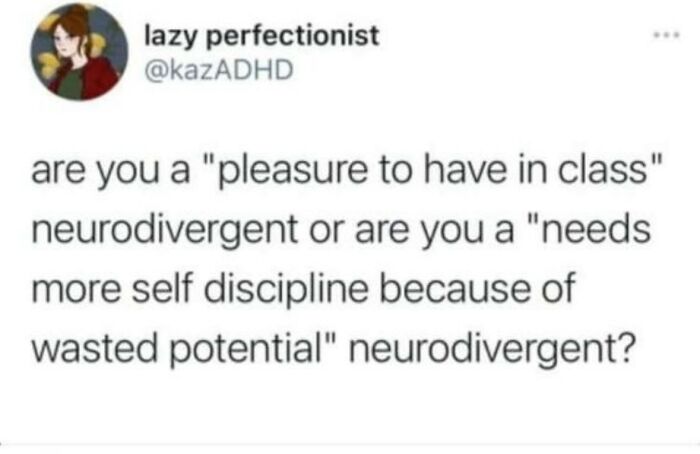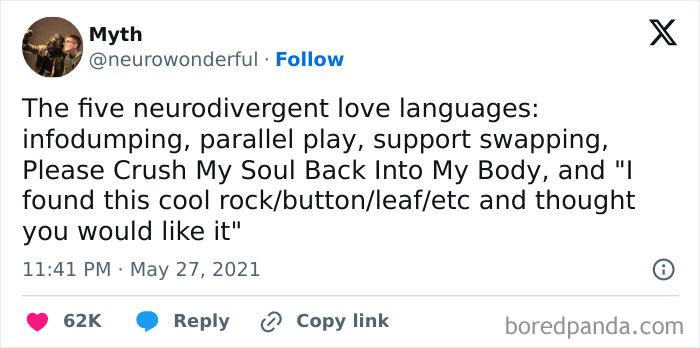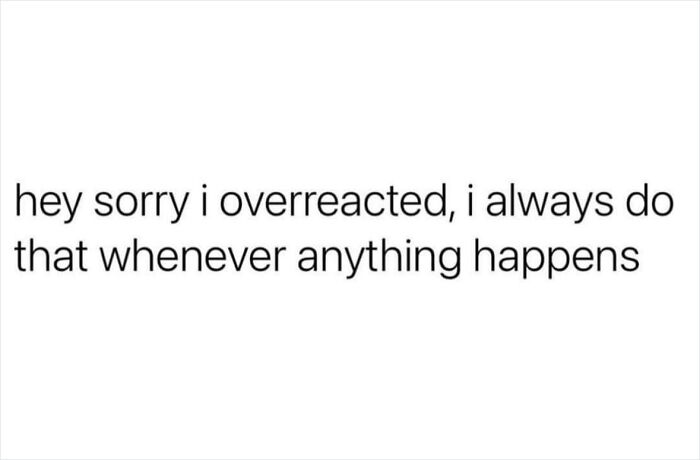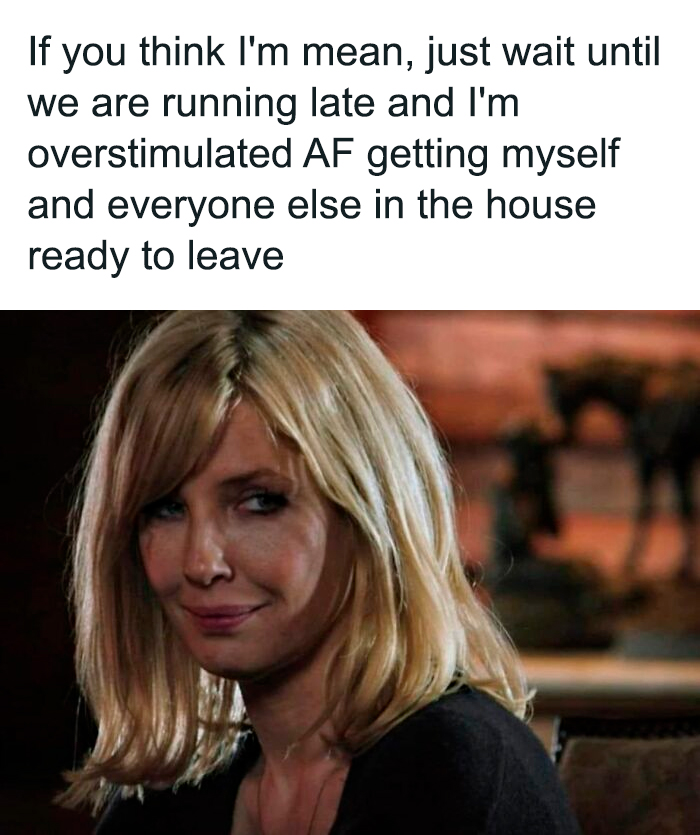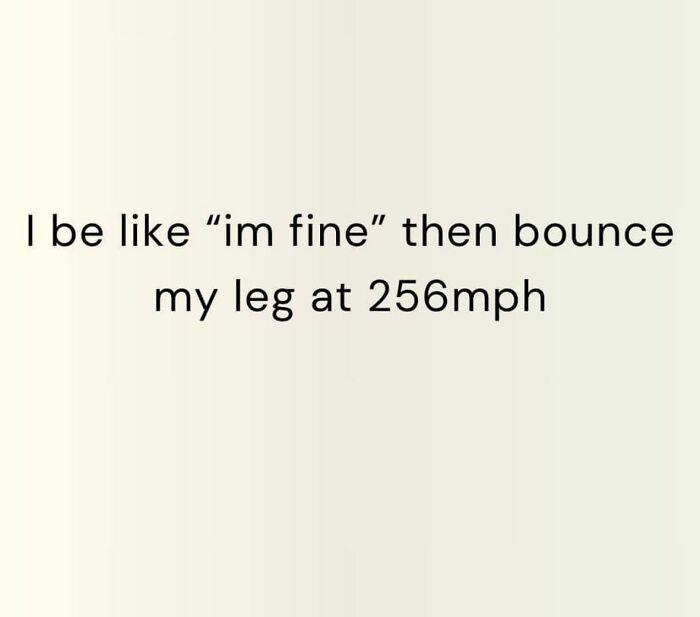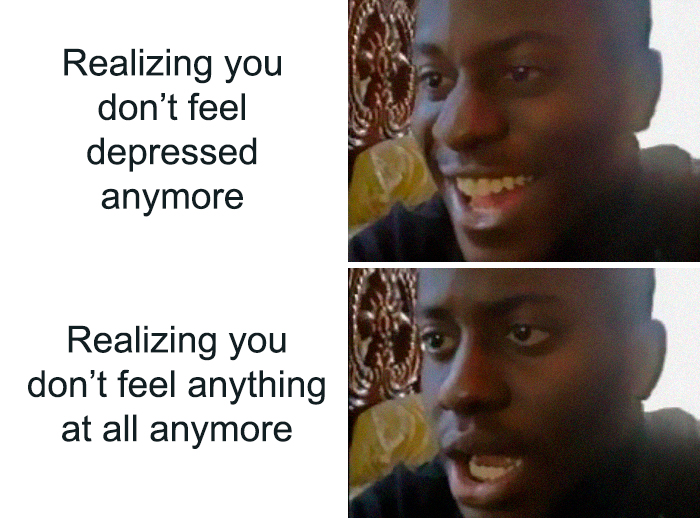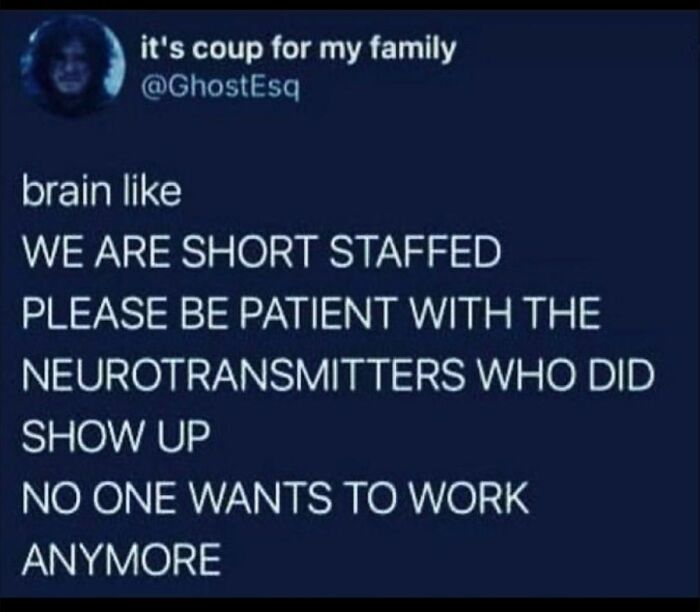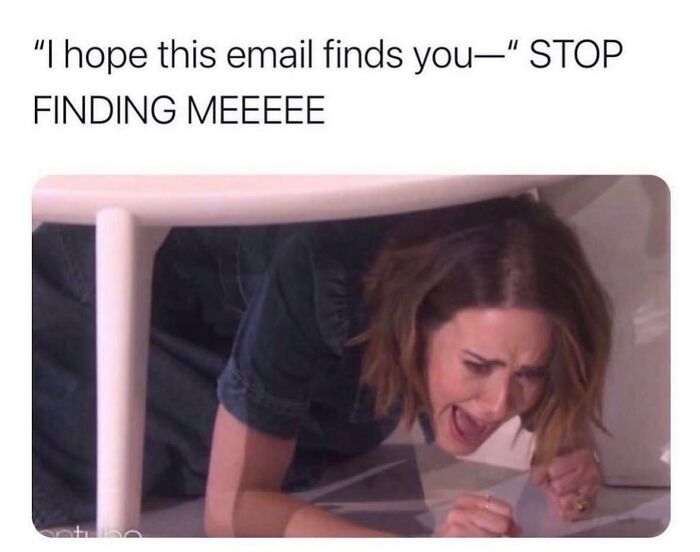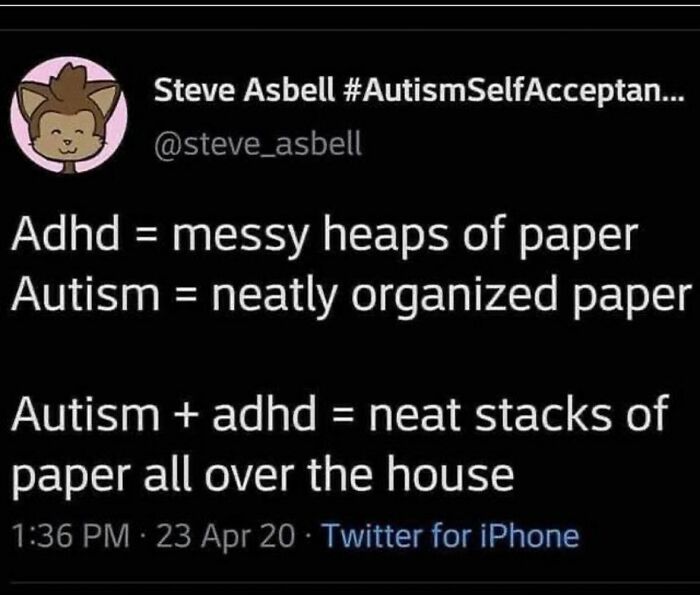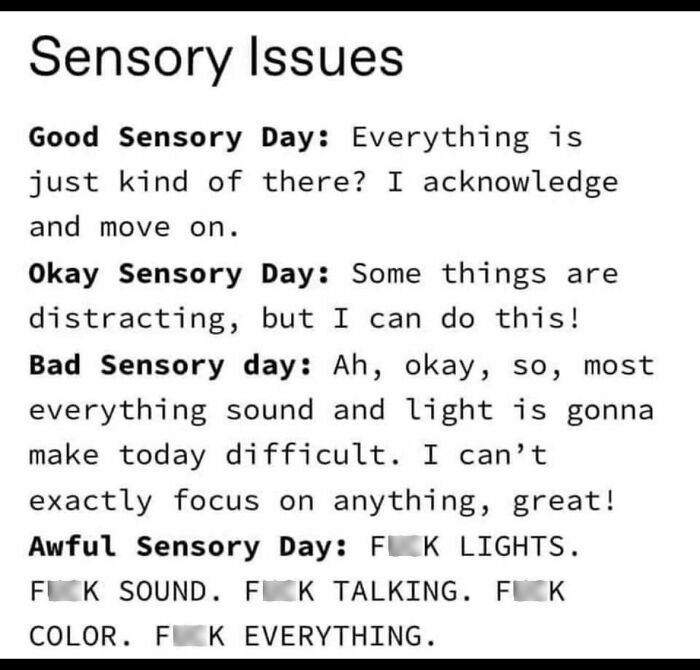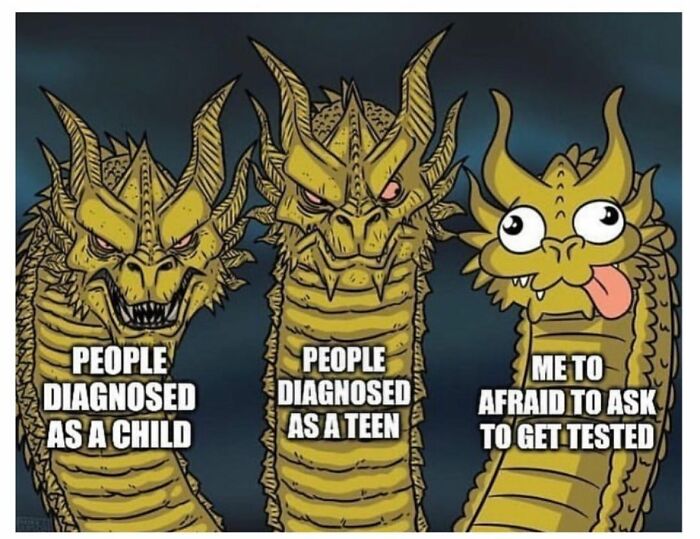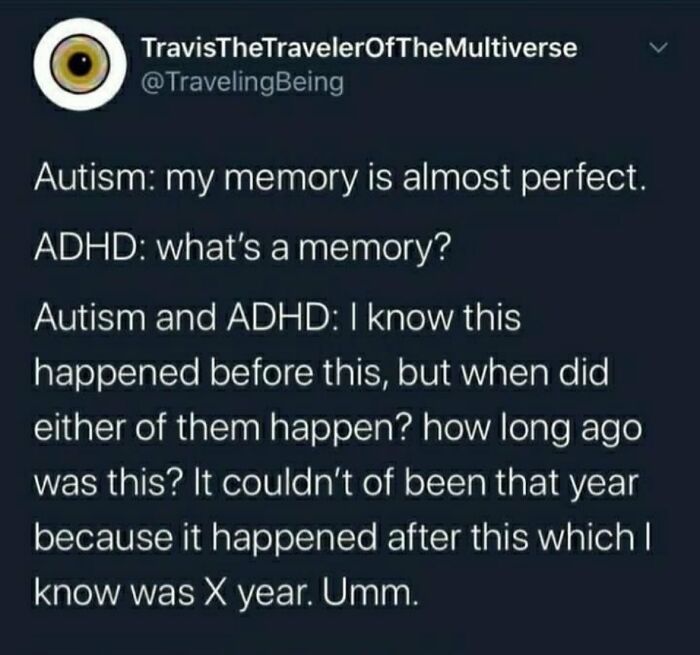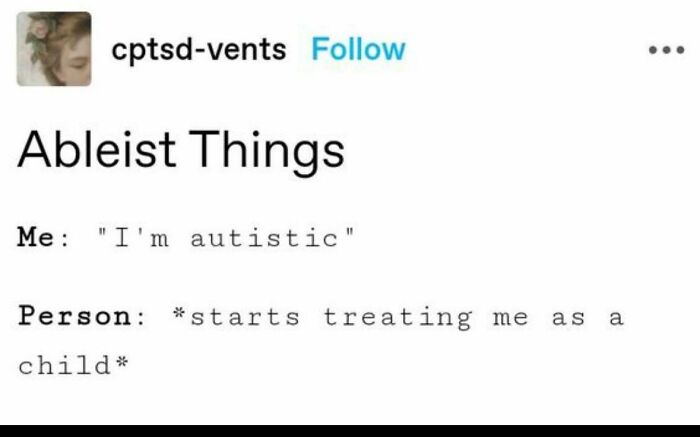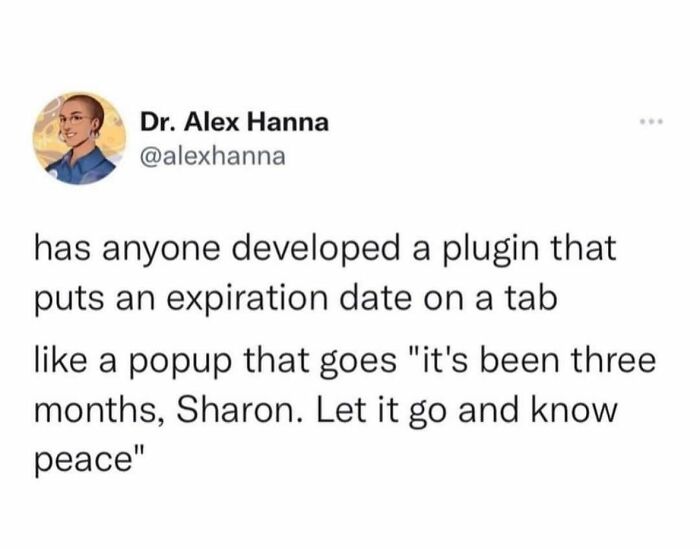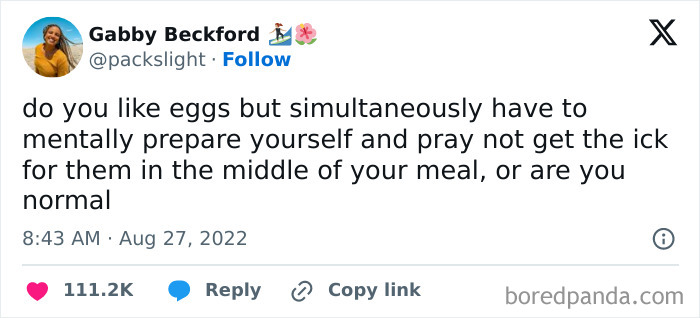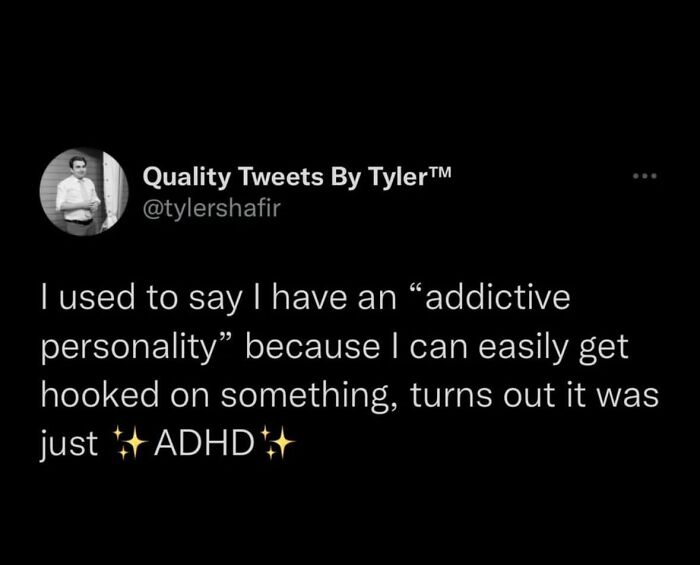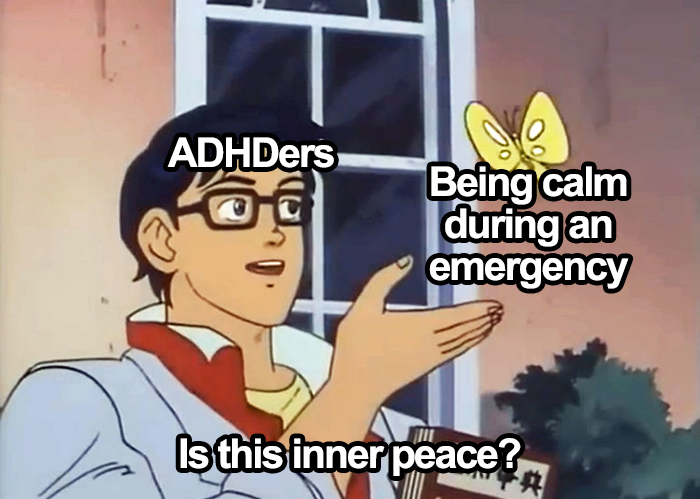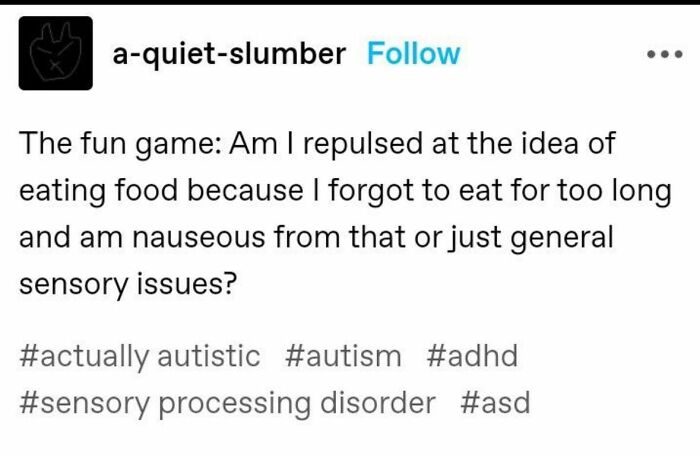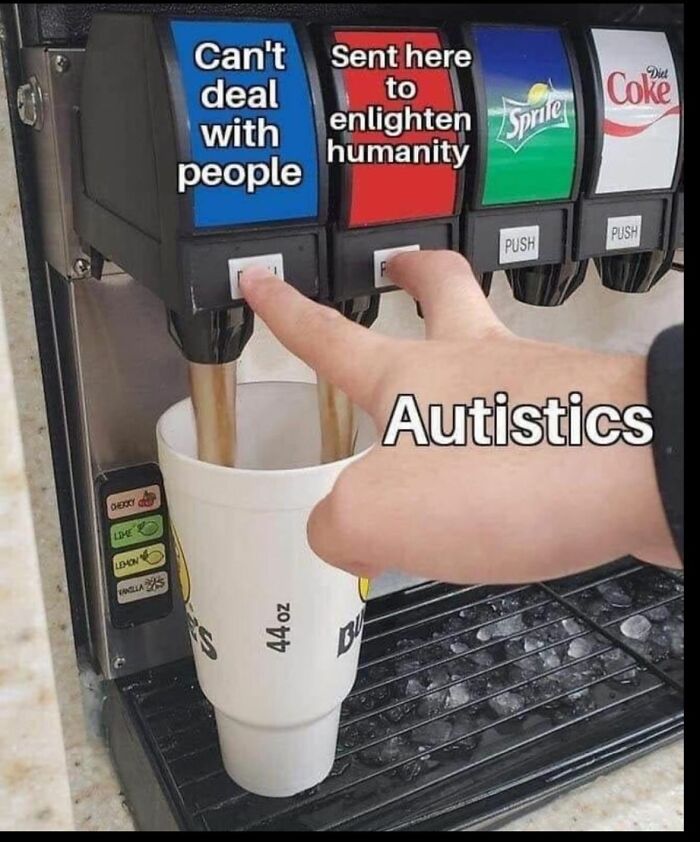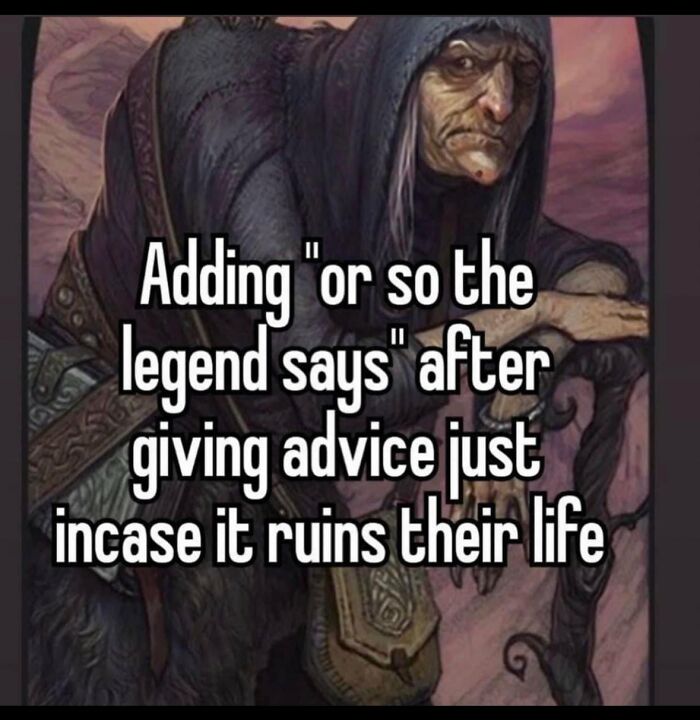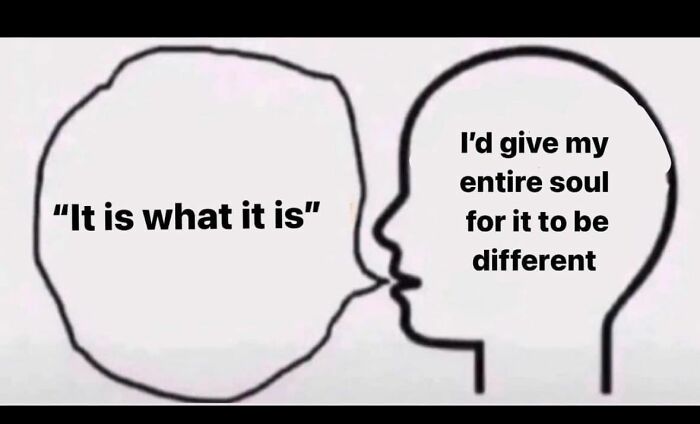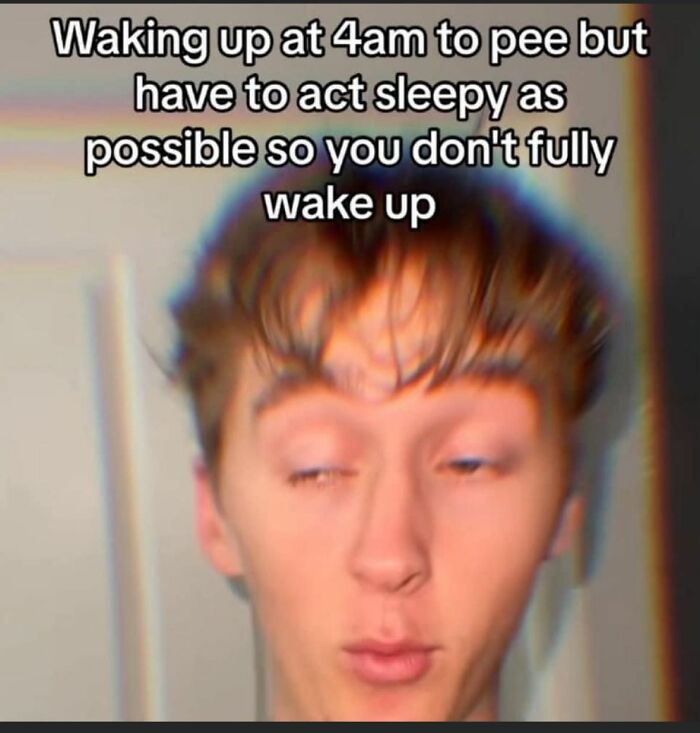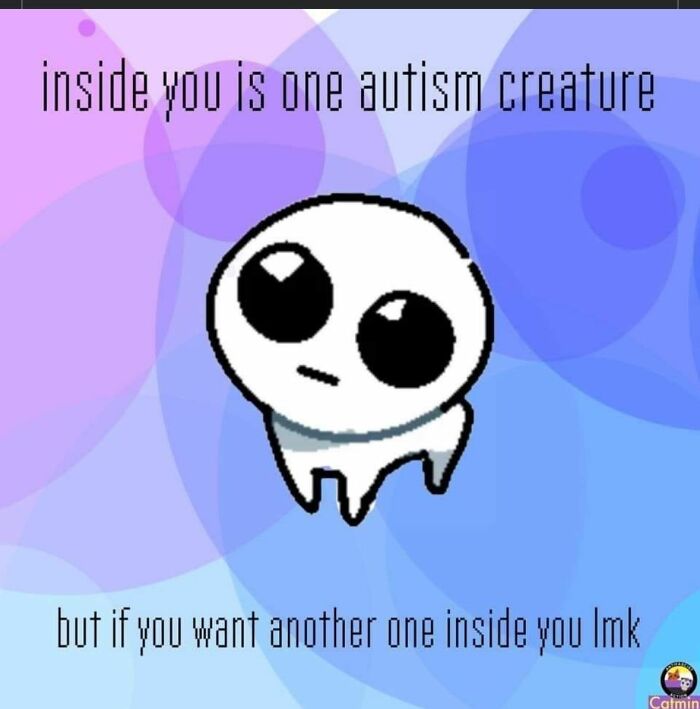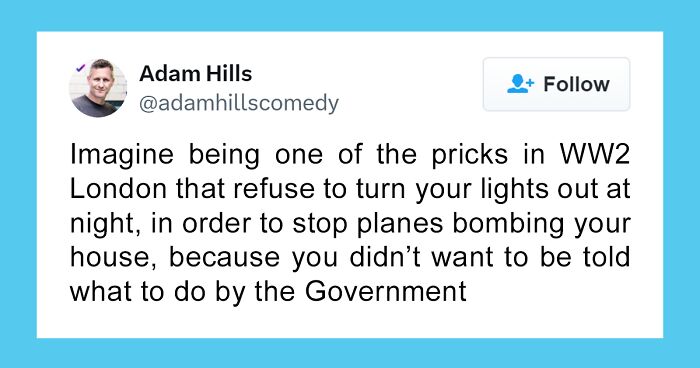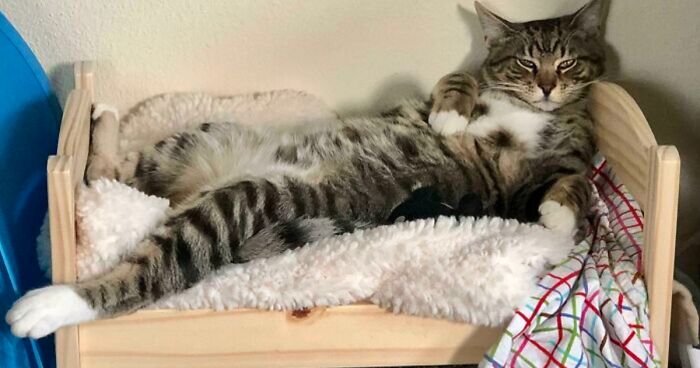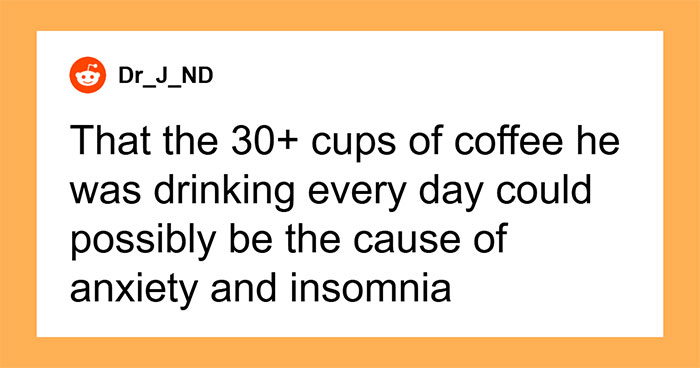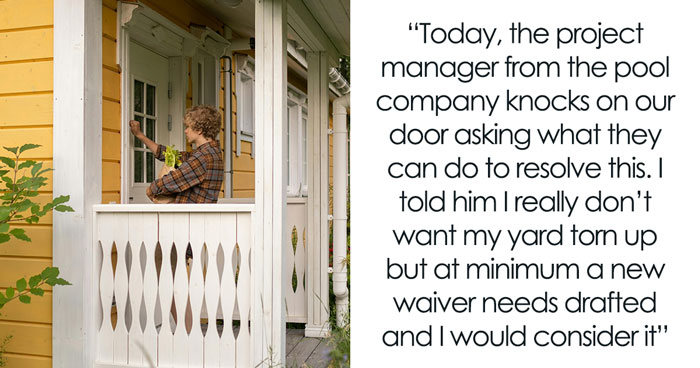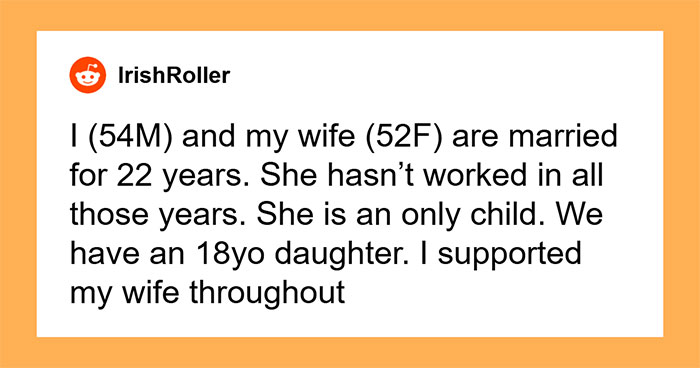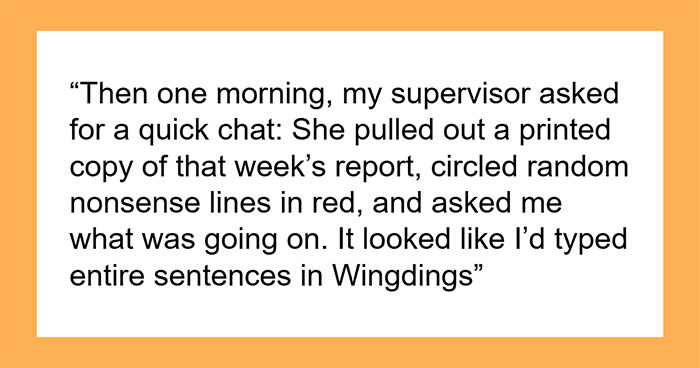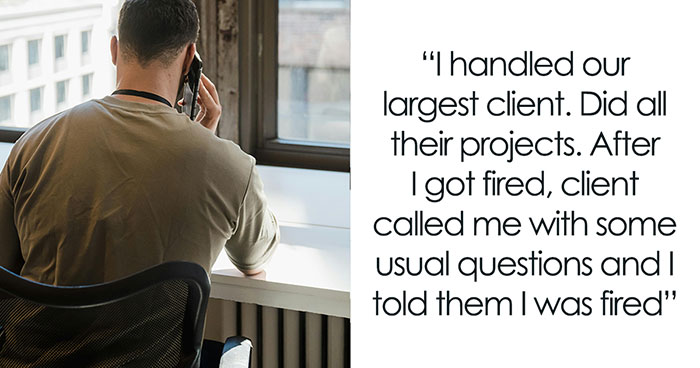
“We Are Not Alone”: 50 Spot-On Memes For The Neurodivergent Brain
Interview With AuthorADHD can be a wild ride. From forgetting where you left your keys (again) to finding yourself hyper-focused on a random hobby at 2 AM, life with this condition is anything but predictable. But sometimes, the best way to cope with the quirks and chaos is through humor.
The ‘ADHD Memes’ page on X has become a popular spot for neurodivergent folks looking for a good laugh about their daily struggles. We’ve scoured their posts and rounded up some of their funniest and most relatable memes below. Plus, don’t miss our chat with the page’s creator, Sidney, and psychologist Sabina Nazarova, who debunk common misconceptions about ADHD and provide helpful advice for managing its unique challenges.
This post may include affiliate links.
THIS!!!! seriously as a late diagnosed kid parents please please please get your kid diagnosed if you/teacher/doctor have suspicions.
According to the World Health Organization, ADHD affects about 5% of children and 2.5% of adults, impacting millions of people across the globe. To find out more about what it’s like to live with this condition, Bored Panda got in touch with Sidney, the creator of ‘ADHD Memes.’
“It was a long, winding road to understand why my brain works the way it does,” Sidney shares. He was inspired to set up the meme account after being diagnosed with AuDHD—a combination of autism and ADHD—later in life. (Recent research estimates that 50% to 70% of autistic individuals also have ADHD.)
“Memes became a way for me to process this experience by breaking down complex feelings into digestible, relatable humor,” he says. “I quickly realized that what resonated with me was also striking a chord with others. The page became a space where we could laugh at our struggles, find community, and, most importantly, spread awareness.”
See: never look for subtext when communicating. That's useful for both neurodivergent and neurotypicals. Makes your life x100 times less stressful.
With over 93K followers, Sidney’s page has become a refuge for the neurodivergent community. The feedback has been overwhelming, he says. “I get at least two DMs a day from people sharing that my memes were the catalyst for them to seek a diagnosis. They tell me that seeing their experiences mirrored back at them in a humorous, non-judgmental way gave them the push to get tested and start treatment. It’s incredibly fulfilling to know that something as simple as a meme can have that kind of impact.”
My mom was like this. If she had an appointment at 4 in the afternoon, her WHOLE day was ruined because she couldn't do anything until after that appointment was over. For years I thought I had the same issue, turns out I just absorbed it from her lmao (thought I still prefer having my appointments early on so it's over and done with)
Which is why I say "That's how I can best explain it. Am I making sense at all?" - because.. unfortunately... maaaany... manager/bosses tend to use "Does that make sense" in a very condescending context... so now the rest of us who know we sound all Jabberwocky at least 50% of the time have to find an alternate 'way to say it'.
The growing awareness of neurodivergent conditions has made them a big topic of discussion online. Unfortunately, they’re also often the subject of jokes by people who don’t fully understand them. To get a better perspective, Bored Panda spoke with psychologist Sabina Nazarova.
“ADHD, or Attention-Deficit/Hyperactivity Disorder, is a neurodevelopmental disorder that affects how people think, focus, and control their impulses,” Nazarova explains. “It’s commonly discussed in terms of two main types: inattention and hyperactivity-impulsivity. Some people may struggle more with focusing and staying organized, while others may be more hyperactive or impulsive. Many experience a combination of both.”
Nazarova generally prefers using the terms neurodivergent and neurotypical instead of simply labeling ADHD. “I believe these terms better capture the diversity in how people’s brains work,” she says. “There are so many variations in brain function, and calling it ADHD doesn’t fully reflect that.”
Indeed, this condition is not as straightforward as some might think. It primarily affects the brain through differences in dopamine regulation, which impacts focus and motivation. Key areas like the prefrontal cortex, responsible for planning and impulse control, often show reduced activity. Additionally, ADHD can lead to delayed brain maturation, smaller brain volumes in certain regions, and communication issues between brain networks. These differences result in challenges with attention, impulse control, emotional regulation, and time management.
Well, I just finished disputing a charge on my credit card, a charge that has been there nearly a month.
Due to stereotypes surrounding ADHD, many people don’t recognize that they’re experiencing its symptoms—fewer than 20% of adults with ADHD are even aware they have it, let alone that they should seek treatment.
“People often associate ADHD with attention issues, hyperactivity, and distractibility, but they often overlook the emotional toll it takes,” Nazarova says. “It’s not just about getting distracted; it’s about the intense struggle and frustration that comes with trying to focus, the overwhelming effort it takes to sit down and work on a project, and the feelings of inadequacy when it feels impossible. ADHD is more than just a challenge with attention—it’s a deeply felt experience.”
Is this an ADHD thing? I was told/scold (a while ago - like, when I was still a non-adult) that that this was just being self-centered... "everything's not about you" or... "Why do I care about your story?" - so... now if what someone is saying reminds me of something that I can relate to (ie: something that helps me better understand their story) - I keep quiet, knowing that no one wants to know about me anyhow. If this compulsion is an ADHD thing... hm... well, that changes the PoV.
Sidney agrees that living with ADHD or other mental challenges can be a tiring experience. “People often underestimate the mental exhaustion, the constant battle with executive dysfunction, or the anxiety that comes with trying to keep up in a world that isn’t designed for neurodivergent minds,” he says.
Nazarova adds that a common misconception about ADHD is that people with it are lazy or unmotivated because they have trouble getting things done. “ADHD is a neurological condition that affects focus and impulse control, and individuals often work hard to complete tasks despite their struggles,” she explains.
Another myth is the belief that people with ADHD can’t be successful, a view that was more common before social media began glamorizing the condition. “Many people with ADHD can and do achieve great success,” says Nazarova. “However, I strongly oppose this glamorization, as not being able to focus sometimes does not equate to having ADHD. Those with an ADHD diagnosis face significant challenges that go beyond occasional distractions.”
I'm... not on the spectrum - and I tend to answer that question honestly if it's someone I want to go away (and it's not someone who can/will fire me for being 'insubordinate'). Yes, I actually HAVE been let go/mistreated at work for answering with things like "[Bad thing happened on the weekend], but just going forward and getting into the work routine, so it's getting better."
For those finding life with ADHD particularly difficult, Nazarova offers some professional advice.
“People with ADHD can improve focus and organization by understanding how their brains work and recognizing that not everything is about willpower—some tasks are genuinely harder for them,” she says. “It’s essential to focus on strengths rather than flaws. One effective strategy is to declutter their environment, as a clean space can enhance concentration.”
This might involve minimizing purchases and using helpful tools like robot vacuums, dishwashers, and dryers to simplify chores. Additionally, prioritizing tasks and using a reward system can motivate the brain. “Ultimately, my advice is to be kind to yourself, understand your needs, and seek help when necessary,” Nazarova encourages.
Even worse is when you DO have the words, and explain it clearly, in several different ways and then figure out, after all that .... that others just don't believe you and think you're being a useless POS on purpose.
Well, upon reflection - I realized that these complaints **usually** came about when people didn't like that you weren't dancing to their tune/pandering to them. Like... "No, that thing isn't cool. I think it was stupid to spend $$$ on that jacket/dress/thing you don't need, because you were JUST complaining about having no money and being in debt." - now you're too straight forward - they asked question, did not like answer. And you end up being 'too talkative/hyper when they find you're drawing attention away from them, and they're attention wh**es (and they thought inviting you along would make them look EXTRA awesome due to relative attractiveness... and now it's backfiring).
Let me tell you all, so many things from primary school and secondary school have started to make sense now. And there’s still stuff that I’m realising is ‘oh my god, that was Autism?! How did nobody catch that!?!’
Sidney’s final message to neurodivergent folks is that you’re not alone, and there’s nothing wrong with you.
“Our brains are wired differently, and that’s okay. Embrace the quirks, the challenges, and the strengths that come with being neurodivergent. Seek out community, whether it’s online or in person. Find the tools that work for you, whether that’s therapy, medication, or lifestyle adjustments.”
“Above all,” says Sidney, echoing Nazarova’s sentiment, “be kind to yourself—this journey is yours, and it’s valid.”
I dream vividly almost every night and often I remember what I dreamt, but since a few weeks I've been dreaming about work related stuff and now I come into the office and the first thing out of my mouth is "Did I already discuss this with you or did I just dream I did?"
I get something similiar with food. I want a snack - I want sweet or savoury - I don’t know what texture I want - on and on and on.
Yup. Ask me about my all time favorite book and I can't tell you the plot but I can recall this one scene very vividly
Very true. I need my games or cartoons to rebalance myself regularly to stay operational.
When parents say "Because I said so" it makes me so angry and I'm like "But WHY did you say so?"
The thing is you can appreciate all these things AND acknowledge that your current situation is bad. I am very, very well aware that my situation (economical and general) is far better than it was when I was a child/teen. I AM grateful for it. Every. Single. Day. But it doesn't change the fact that my current situation still sucks - just less than it used to.
Make a combo: "I know I should do this thing I postopned for the last two months and that should be ready tomorrow, so I was reading fanfictions but somehow few hours later I was learning about how to make paper flowers because it seemed interesting... anyway, have a crooked paper rose you don't really nead, love you."
... Not really sure how I feel about the "feel" of this whole thing where it seems to be leaning heavily on "if you have ADD/ADHD, you're autistic" - like... you know that's not how it works, right?
I think the title isn't quite right - that's common for Bored Panda. That said there are really big overlaps between autism and ADHD and a lot of people are both.
Load More Replies...Not neurodivergent but i related with a lot of these?
... Not really sure how I feel about the "feel" of this whole thing where it seems to be leaning heavily on "if you have ADD/ADHD, you're autistic" - like... you know that's not how it works, right?
I think the title isn't quite right - that's common for Bored Panda. That said there are really big overlaps between autism and ADHD and a lot of people are both.
Load More Replies...Not neurodivergent but i related with a lot of these?

 Dark Mode
Dark Mode 

 No fees, cancel anytime
No fees, cancel anytime 










